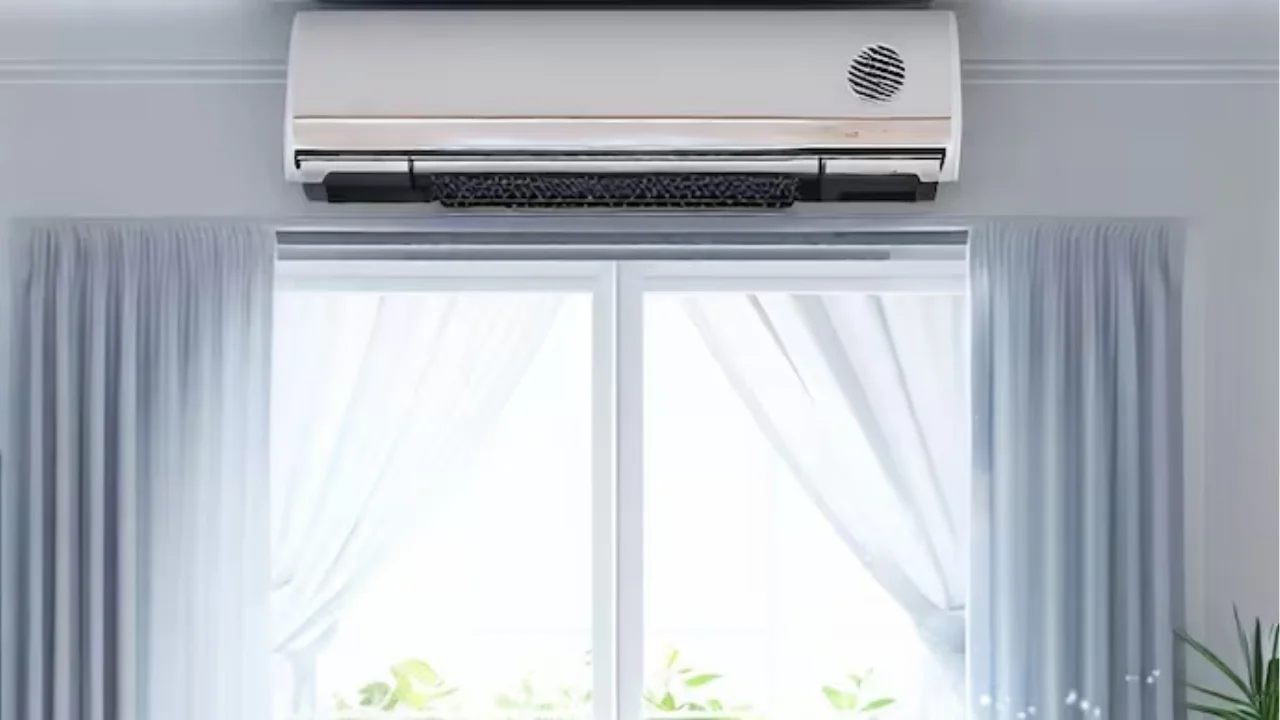As temperatures rise, so does the temptation to crank up the air conditioning to stay cool. However, running your AC constantly can lead to high energy bills. The good news is that there are several strategies you can implement to maximize your air conditioning efficiency and lower your energy costs.
- Regular Maintenance: One of the most important steps in maximizing your air conditioning efficiency is to ensure that your system receives regular maintenance. This includes cleaning or replacing air filters, checking refrigerant levels, and inspecting ductwork for leaks. A well-maintained AC system operates more efficiently, leading to lower energy consumption.
- Programmable Thermostat: Installing a programmable thermostat allows you to set specific temperature schedules based on your needs. For example, you can program the thermostat to automatically adjust the temperature when you’re away from home or asleep, reducing energy usage during times when cooling is unnecessary.
- Sealing Air Leaks: Air leaks in your home can cause cool air to escape, forcing your air conditioner to work harder to maintain the desired temperature. Inspect windows, doors, and any other potential openings for leaks and seal them with weatherstripping or caulking to improve energy efficiency.
- Proper Insulation: Adequate insulation is essential for maintaining a comfortable indoor temperature and reducing the workload on your air conditioning system. Ensure that your home is properly insulated, especially in the attic and walls, to prevent heat transfer and keep cool air inside.
- Use Fans Wisely: Ceiling fans and portable fans can help circulate air and make your home feel cooler without relying solely on your air conditioner. Use fans strategically to enhance airflow and supplement your AC’s cooling power. Remember to turn off fans when you leave the room to avoid wasting energy.
- Shade Your Home: Direct sunlight streaming through windows can significantly increase indoor temperatures and strain your air conditioning system. Planting trees or installing exterior shades, awnings, or blinds can help block out the sun’s rays and reduce the need for excessive cooling.
- Limit Heat Generation: Appliances, lighting, and electronics generate heat when in use, which can raise indoor temperatures and cause your air conditioner to work harder. Minimize heat gain by using energy-efficient appliances, turning off lights when not in use, and avoiding activities that generate excess heat during the hottest parts of the day.
- Upgrade to Energy-Efficient Equipment: If your air conditioner is outdated or inefficient, consider upgrading to a newer, more energy-efficient model. Look for units with a high Seasonal Energy Efficiency Ratio (SEER) rating, which indicates better energy performance and lower operating costs over time.
- Schedule Regular HVAC Inspections: Professional HVAC inspections and tune-ups can identify any issues or inefficiencies in your air conditioning system before they escalate into major problems. Schedule annual inspections to ensure that your AC operates at peak efficiency and reliability.
- Optimize Ventilation: Proper ventilation is crucial for maintaining indoor air quality and promoting efficient airflow throughout your home. Keep air vents unobstructed and consider installing additional ventilation systems, such as whole-house fans or energy recovery ventilators, to enhance air circulation and cooling efficiency.
By implementing these tips and strategies, you can maximize your air conditioning efficiency and enjoy a cool, comfortable home while keeping energy bills in check. Remember that small changes can add up to significant savings over time, so prioritize energy-saving practices to benefit both your wallet and the environment.
Maintaining an optimal balance between comfort and energy efficiency is key to managing your air conditioning usage effectively. With the right strategies in place, you can keep your home cool without breaking the bank.
Regular maintenance is the cornerstone of efficient air conditioning operation. Simple tasks such as replacing air filters and cleaning ducts can go a long way in improving airflow and reducing energy consumption. Additionally, scheduling annual HVAC inspections allows professionals to identify potential issues before they escalate, ensuring that your system operates smoothly throughout the year.
Investing in a programmable thermostat is another effective way to optimize your air conditioning efficiency. These devices allow you to set customized temperature schedules based on your daily routine, ensuring that your AC runs only when needed. For example, you can program the thermostat to raise the temperature during the day when you’re at work and lower it before you return home, minimizing energy waste.
Sealing air leaks is essential for preventing cool air from escaping your home. Inspect windows, doors, and other openings for gaps or cracks, and seal them with weatherstripping or caulking to improve insulation. Proper insulation is also critical for maintaining consistent indoor temperatures and reducing the workload on your air conditioning system.
Using fans strategically can complement your air conditioning efforts by improving airflow and distributing cool air more effectively. Ceiling fans, in particular, can help circulate air throughout your home, making it feel cooler without lowering the thermostat setting. Just remember to turn off fans when you leave the room to avoid wasting energy.
Shading your home from direct sunlight can significantly reduce the amount of heat that enters your living spaces, reducing the need for excessive cooling. Planting trees, installing awnings, or using window treatments such as blinds or curtains can block out the sun’s rays and keep your home cooler naturally.
Limiting heat generation inside your home can also help reduce your air conditioning workload. Choose energy-efficient appliances and lighting fixtures, and avoid using heat-generating appliances such as ovens or clothes dryers during the hottest parts of the day. Instead, opt for tasks that generate less heat, such as cooking on the stovetop or using a microwave.
Upgrading to an energy-efficient air conditioning system is a long-term investment that can yield significant savings on your energy bills. Look for units with high SEER ratings, which indicate superior energy performance and lower operating costs. While the upfront cost may be higher, the long-term savings and environmental benefits make it a worthwhile investment. Things you need to avoid making these common mistakes if you want your HVAC systems to run smoothly!
Maximizing your air conditioning efficiency requires a combination of proactive maintenance, smart usage habits, and strategic upgrades. By following these tips, you can enjoy a cool, comfortable home while keeping your energy bills under control. Remember to prioritize energy-saving practices and make informed decisions when it comes to managing your air conditioning system. With the right approach, you can stay cool and save money all summer long.








